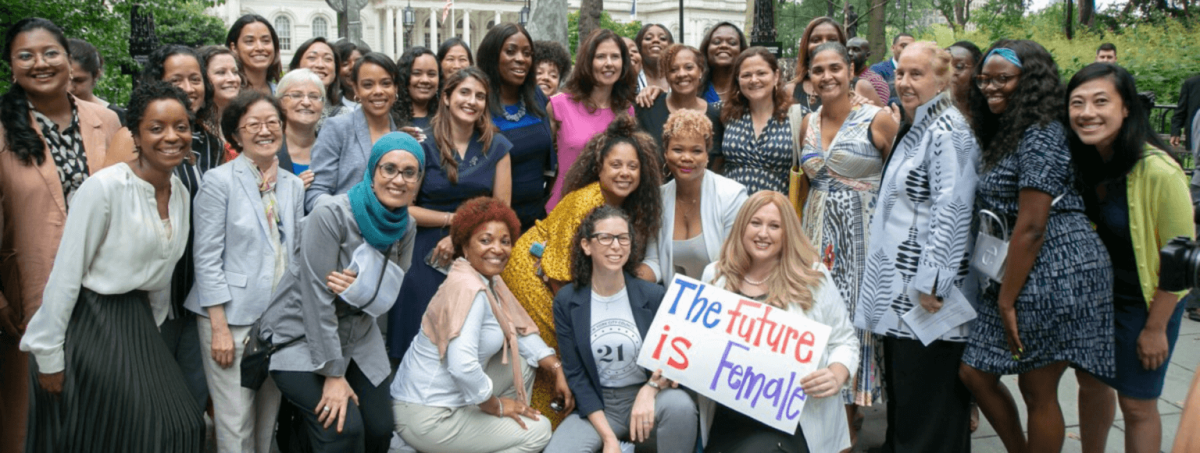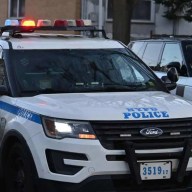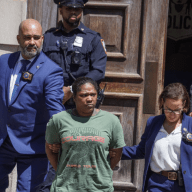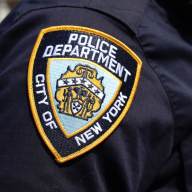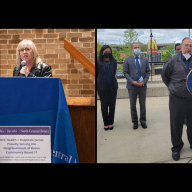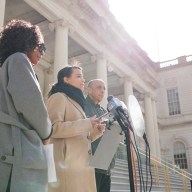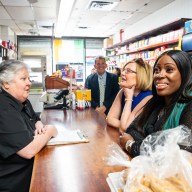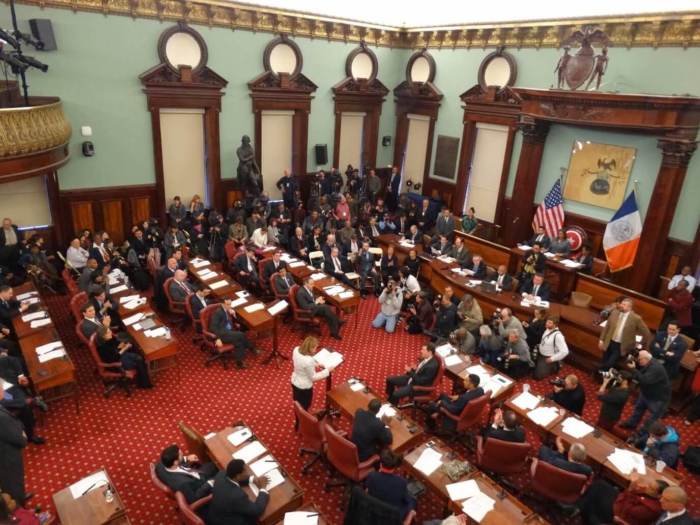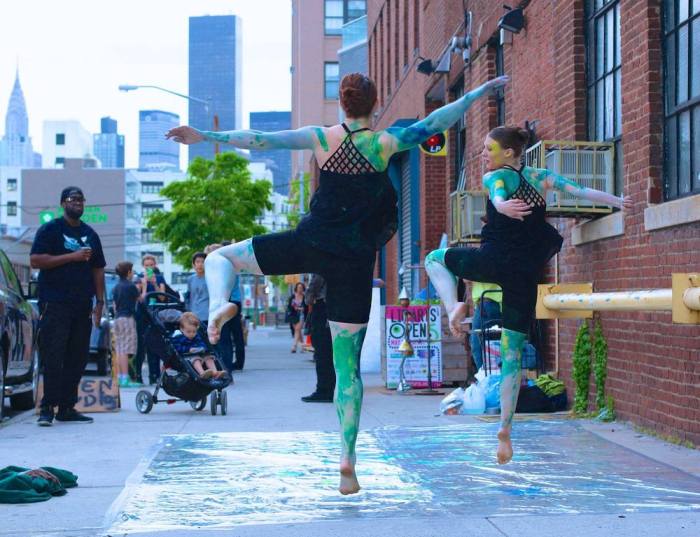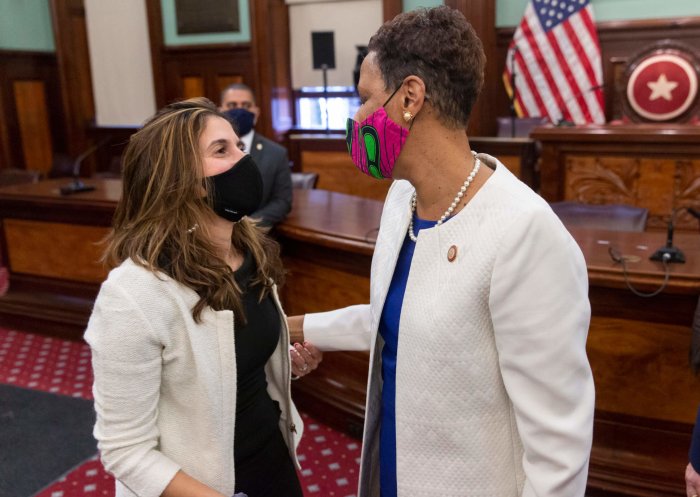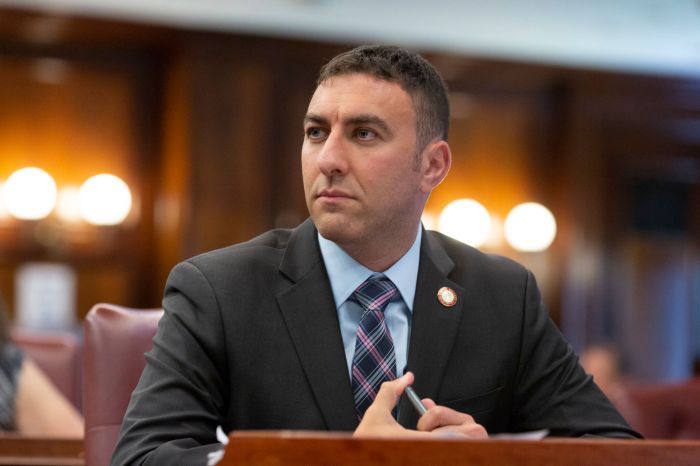A political metamorphosis took shape in New York’s 2021 election cycle. In January 2022, the incoming City Council was historic with the ushering in of new terms for 31 women — with 86% of those women of color — marking the legislative body’s first female majority.
Of the 23 newly elected women to reach Council Chambers that year, four represent the Bronx: Marjorie Velázquez (District 13), Pierina Sanchez (District 14), Althea Stevens (District 16) and Amanda Farías (District 18).
Farías, who ran unsuccessfully for her District 18 seat as a Democrat in 2017, said hurdles for Bronx women of color seeking office are fundraising, volunteering and endorsements, with the borough’s infrastructure of ready-made canvassers and donors paling in comparison to resource-heavy Manhattan and Brooklyn districts.
And getting on the ballot isn’t a given.
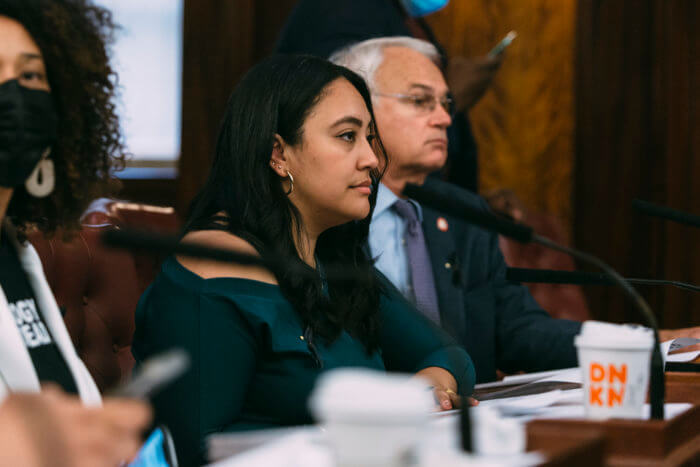
“In the Bronx, some of the resources for candidates to make the ballot can be limited. It may take extra efforts to reengage communities because of how quick those two years go from term to term,” she said. “There’s also other factors like limited volunteerism and some districts the rate of folks with expendable dollars may be limited.”
Farías — who as of press time is not facing a primary challenge for her District 18 seat which encompasses neighborhoods like Soundview, Castle Hill and Parkchester — said maintaining a women-majority council will take cooperative efforts from those in council to support office-seekers, particularly those where outreach to voters may need an extra push.
The work in elevating women — some first-time office seekers — to council chambers has been a multi-year effort by a coalition known as The New Majority NYC, which has been networking and mentoring candidates since 2017.
In 2021, the goal for The New Majority NYC was to attain a majority in City Council. In 2023, the goal is to not only maintain that majority, but build upon it with a diverse electorate, according to the organization.
While South Bronx resident Lola Espinoza has been a peripheral watcher of community board meetings, community council precinct and city council hearings, and one day hopes to run for office to improve language service access for her community.
But Espinoza told the Bronx Times, she’s often felt that being a non-native speaker, not having prior political connections or expendable coin for a monthslong political campaign make those goals “not realistic” for everyday Bronxites.
“You want to be involved. You hear the issues that your community has, and you want to get involved, but there’s so much that makes me feel like I can’t do that or no one cares who I am,” said Espinoza.
A national survey of more than 700 candidates running for local office in December 2021 suggests that despite changes to local elections and voting processes in recent years, identity and personal wealth are still deterrents for entry and success in the political arena.
According to the survey, almost half of the people who experienced poverty and received welfare when they were children — regardless of their race, gender or level of education — doubted their credentials were good enough to run for public office, compared to only 15% of those who never had.
One-third of those who received welfare as children were anxious about even being able to afford a run for office, compared to a mere 6% of their peers who never had.
The New Majority NYC works with candidates across the political spectrum, and will begin issuing its endorsements in a few weeks time, they told the Bronx Times.
And New York City’s unique campaign environment has helped to level some of the playing field in local politics.
New York City’s small-dollar public matching funds program matches small contributions from NYC residents to help candidates who participate to receive up to $2,000 in public funds per eligible contributor.
And any advocates of ranked choice voting (RCV), which went into effect in 2021 for primary races and special elections for city positions, has helped a diverse blocs of candidates earn more of a voting share in those races.
RCV will be in effect for the 2023 NYC election cycle.
Critics of the single-winner plurality system say that it often favors incumbents, which can lead to more expensive campaigns and runoffs.
“NYC is lucky enough to have ranked choice voting, the Campaign Finance Board matching funds program and term limits that help a diverse set of candidates run for local office,” said Jessica Haller, executive director of The New Majority NYC. “It’s really only the combination of all those three plus direct support of women on the ground. And with mentorship, networking connections that we have provided helps us achieve as authentic a (political) representation as possible.”
Reach Robbie Sequeira at rsequeira@schnepsmedia.com or (718) 260-4599. For more coverage, follow us on Twitter, Facebook and Instagram @bronxtimes.

